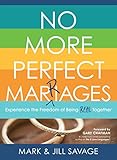Most couples bump into six “operating system” differences in marriage. We will explain these traits and help you know what to do when your operating systems clash!
Internal Processor/External Processor
An internal processor makes decisions and sorts through facts and feelings in their head. An external processor makes decisions and sorts through facts and feelings in conversations. Both are normal and right ways to process life—they’re just different!
Mark and I (Jill) have found that once we understood each other’s unique ways of processing, our opposite operating systems actually help each other out. As an internal processor, I (Jill) have found there are some benefits to sharing my thoughts and feelings when making a decision. I’ll never talk things out as much as Mark (an external processor) does, but I’m learning to let him know I’m thinking about something before I’m done thinking about it. He often presents a perspective I hadn’t considered or an option I need to add into my thinking. I also have come to understand that Mark’s verbal commentary throughout life increases our communication. It keeps us talking and that deepens intimacy.
Introvert/Extrovert
Jill is an introvert, and she loves being alone. I (Mark) am an extrovert and I love being with people. As an introvert, Jill prefers one-on-one conversations. As an extrovert, I enjoy a group setting and love a party. When it comes to friendships—the more the merrier for me! Jill, however, prefers to have just two or three close friends. I confess I always viewed that as a defect in Jill and criticized that she didn’t have more friends. Once I learned that having a small group of friends is characteristic of an introvert, I had to apologize for unfairly judging her.
When navigating this difference in marriage, compassion is needed to help you meet in the middle. If you’re the extrovert, you need to have compassion and understanding for your spouse’s need for quiet. If you’re the introvert, you’ll need to have compassion and understanding for your spouse’s need for socializing. This is one way that marriage stretches us and even balances us. Mark’s need for socializing keeps me from the temptations many introverts face to isolate. We participate in a small group at church because he likes that kind of interaction with other believers. I also want contact with other believers, but prefer it in one-on-one settings. However, being a part of a small group is still good for me and it is something Mark and I can do together, since so many of our friends are “my friends” or “Mark’s friends” rather than couples.
By the way, being an introvert doesn’t automatically make you an internal processor. The same goes for extroverts and external processing. Sometimes you’ll find those lining up, and sometimes not.
Medium-High Capacity/ Medium-Low Capacity
“Capacity” refers to the emotional capacity we have. It also refers to how many balls you can juggle before it’s too much and stress gets in. I (Jill) am medium-high capacity and Mark is medium-low capacity. Both are normal. One is not more “right” than the other. We just have to know ourselves and know our spouse in order to respect and honor both who we are and who they are.
As we learned to live life together, God used our differing capacities to stretch and mold us to be more grace-giving, forgiving, and compassionate with each other. I (Jill) had to learn that even though I could handle doing a lot, it wasn’t necessarily healthy for me (spiritually, emotionally, and physically), and it also wasn’t healthy for my marriage. Not only that, but my high-capacity choices too often forced Mark in a high-capacity role. If I overcommitted, it often committed him in some way. My high-capacity, do-a-lot choices affected him more than I realized.
In the same way that my (Mark’s) medium-low capacity has been good for Jill, her medium-high capacity has been good for me. She helps me persevere when I really want to quit. She helps me to get things done when I feel overwhelmed by the task. God knew what he was doing when he put us together because we balance each other out in so many ways. What I saw as a liability, God designed as an opportunity.
Just like other differences, when we’re dealing with capacity, we have to adjust our expectations of each other. It is human nature to expect others to be “normal” like we are. The more understanding and accepting we are, the less frustrated we get with one another.
It is human nature to expect others to be ‘normal’ like we are
Innie/Outie
Nope, were not talking belly buttons here. This refers to the way we organize our “stuff.” Innies tend to file, while outies tend to pile. This outie woman married an innie man and fireworks have happened over the years because of this difference. There’s no right or wrong here . . . just different. If we don’t understand each other, however, we can find ourselves quickly coming to wrong conclusions about each other.
For me (Mark), Jill has helped me relax a bit about “stuff.” I’ve learned to find a balance between what I desire and real life. She’s helped me have realistic expectations. Jill and I have become a little more like each other without losing ourselves. By using wisdom (understanding each other), grace (giving each other the freedom to be human), and forgiveness (letting each other off the hook when our difference clash), we’ve allowed God to perfect us to be more like him in the way we treat each other.
Structured/Spontaneous
A structured person likes to plan and work the plan. A spontaneous person likes to go with the flow. Structured folks like to have their ducks in a row while spontaneous folks are the free spirits of this world. Both are normal and okay. The problems happen when we bump into each other’s preferences.
We’ve learned to balance each other out. I (Mark) am much more sensitive to the structured people around me, because Jill has helped me value their need for information. I (Jill) am more inclined to suggest something spontaneous to Mark, because I know he loves that. So on a Saturday that we’ve worked hard on the house and the yard, I might say mid-afternoon, “Let’s hop on the motorcycle and go out to dinner tonight.” Mark loves that kind of spontaneity. He can do the same with me, but he’s learned it’s helpful to give me a little notice to adjust my planning mind, which probably already had meat thawed for dinner.
I (Jill) have also had to figure out what is truly a structure preference and what is really my desire to control. Yep, I know admitting that might be stepping on some toes if you’re structured as I am. For instance, if Mark says, “I’m taking you away next weekend,” I DO want to know where and what we’re doing, but I’ve learned that is my desire to control and even pride coming out. He can make those decisions without my input. Do I need to honor the structured planner in me, or do I want to know because I think I can make a better decision?” Oooooh . . . that’s not a fun question to sort through, but it’s an important one for sure.
Thinker/Feeler
Usually in marriage, one spouse leans more toward thinking and one leans more toward feeling. In our marriage, Jill is the thinker and I (Mark) am the feeler. Thinkers use facts and research to make decisions and interpret their world, while feelers use emotion and intuition.
Where this gets challenging in marriage is that each person needs something from the other they have to work hard to give. For instance, as a thinker, I (Jill) want Mark to give me facts and research when we need to make a decision. That’s secondary to him so he has to work a little harder at it. As a feeler, Mark wants me to connect with him emotionally, and that’s not always the easiest thing for me to do. I have to dig a little deeper to really know what I
“feel” about something.
Of course one of the best ways to work as a thinker/feeler team is to operate within our strengths. When we’re planning a trip or making a purchase, Mark will often ask me to do the research. I’m usually happy to do that. If Mark senses something is wrong with one of our kids, I’ve learned to trust him. His discernment meter is far more sensitive than mine and I don’t always notice subtleties in their demeanor. Usually he’s right! When we learn to trust each other’s strengths, we’re less likely to be frustrated by them. This is when we’re better together!
Differences aren’t labels, They’re not excuses. They’re most certainly not deficiencies. Differences are the personality and temperament traits that describe how we process the world around us. We start by understanding ourselves first and then we move to understand our spouse better.
Marriage challenges happen when we think the way we do things is the right way or the only way. But when we begin to understand and accept our spouses for who they are, we are making important progress.
The more we understand, the more we use wisdom, acceptance, and compassion. This allows our spouse to be who God created him or her to be. Let’s commit today to look at differences through a different lens. We promise you’ll turn frustration into fascination!
Adapted from No More Perfect Marriages: Experience the Freedom of Being Real Together by Mark and Jill Savage (© 2017). Used by permission. www.MoodyPublishers.com.












